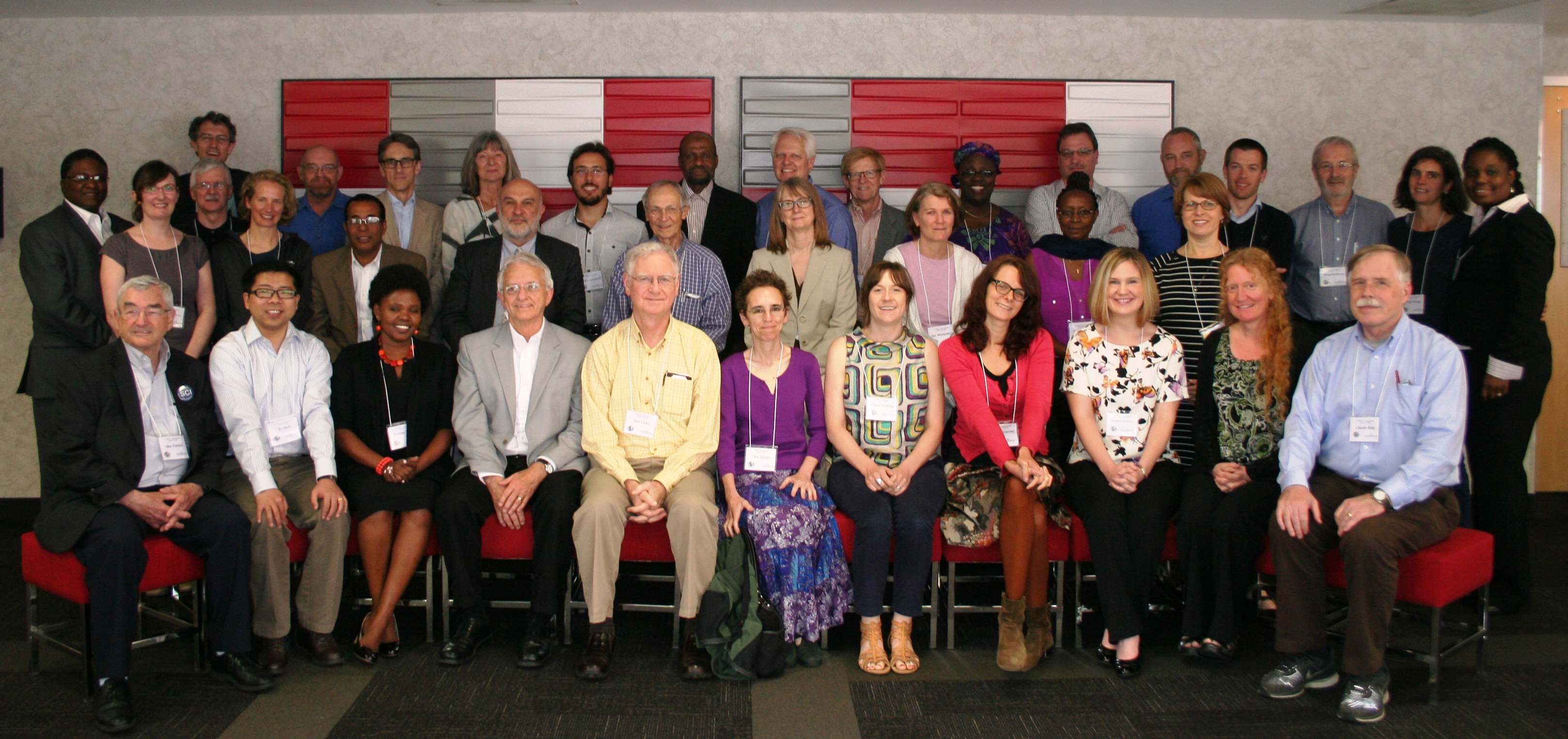SCORE: Moving towards schistosomiasis elimination

Forty-five researchers and other leaders, representing 24 institutions and 12 countries, in the fight against neglected tropical diseases (NTD) gathered at The University of Georgia in Athens, Georgia on June 3 through June 5, 2015 for the annual meeting of the Schistosomiasis Consortium for Operational Research and Evaluation (SCORE).
“It’s great to get everyone together in one room to discuss the past year’s progress and plan for future projects,” said Carl Campbell, SCORE’s associate director for management. “We are especially interested in what key lessons we have learned, as one of our major objectives is to disseminate the operational research findings and lessons learned to the global neglected tropical diseases community.”
SCORE was established in 2008 through a Bill and Melinda Gates Foundation grant for the purpose of answering strategic questions about schistosomiasis control and elimination. The consortium focuses on Schistosoma mansoni and S. haematobium, two major disease-causing schistosomes in Africa, the Americas (S. mansoni only), and the Middle East. In 2014, SCORE received additional funds from the Bill and Melinda Gates Foundation to expand the research focus to moving towards elimination and to include surveillance for intestinal worms referred to as soil-transmitted helminths, including roundworms (Ascaris lumbricoides), whipworms (Trichuris trichiura) and hookworms.
It is estimated that there are at least 240 million cases of schistosomiasis each year world-wide; approximately 90% of these cases are in Africa. Approximately 1,000 people die monthly from the disease, but it is the chronic illness and subtle morbidity that is devastating to millions more.
Chronic infection caused by schistosomiasis leads to reduced cognitive ability, anemia, chronic diarrhea, female genital schistosomiasis, and other ailments that impact quality of life and productivity.
“Schistosomiasis is a disease of poverty that leads to chronic ill-health, and a major contributor to the never-ending cycle of poverty in these villages,” commented Campbell.
As a consortium tasked with operational research, SCORE is finding out what current and future NTD program managers need to do to make mass drug administration (MDA) for schistosomiasis a better intervention in terms of alternative approaches. SCORE is also working to evaluate and develop tools needed by national program managers for mapping and diagnostics. The efforts of SCORE directly aid in achieving the goal set by The World Health Assembly of eliminating schistosomiasis by 2020.
Already SCORE has evaluated a more sensitive and effective tool for screening for schistosomiasis (S. mansoni) which has been adopted by the World Health Organization (WHO) and recommended to countries to accurately map the disease caused by S. mansoni.
“With this new tool, we have discovered that the prevalence of schistosomiasis in African countries where implemented, is much higher than we thought,” said Campbell. “For example, in Burundi it was believed that only about 1.5% of the population nationally was infected, but after using this tool in mapping nationally the actual prevalence is closer to 35%.”
During the 3 day meeting, which included representatives from the Bill and Melinda Gates Foundation, Centers for Disease Control and Prevention, Emory University, Natural History Museum London, Imperial College of London, WHO, Kenya Medical Research Institute, National Institute for Medical Research/Tanzania, Swiss Tropical & Public Health Institute, Taskforce for Global Health, University of Copenhagen, the Global Schistosomiasis Alliance, and country partners from Kenya, Zanzibar, Niger, and Tanzania, they reviewed the current findings and lessons learned from the SCORE funded studies and addressed a number of future research questions identified as gaps in the current operational research agenda.
“We have found, for example, that some villages in Zanzibar, Kenya, and elsewhere have responded very well to treatment, but in other villages, though they receive treatment every year, we saw no real decrease in disease prevalence. We have to ask ourselves ‘Why? What other factors are driving a higher force transmission in these villages compared to others that are responding better to the MDA interventions?’” said Campbell.
With several of the MDA studies coming to an end later this year and in 2016, they are already confirming that prevalence and morbidity can be reduced by mass drug administration, but not completely eliminated.
“Other methods of control and elimination, such as snail control, access to clean water, and better sanitation, are needed in order to move towards elimination.”
Analyzing the data from the gaining and sustaining control studies to provide WHO and countries with the data to support effective alternative MDA treatment guidelines, SCORE will also be looking into other means to control and hopefully one day eliminate this devastating disease.
“When I go into a village and meet with the people, my first question is always ‘What is your biggest health related concern’ and inevitably it is clean water, better sanitation, often malaria, but usually not schistosomiasis,” reflected Campbell. “Schistosomiasis is something they live with every day and is not perceived as an immediate threat to their survival. It is our job to help them see the connection between their immediate needs and the long term effect of this disease. It is when the people of the village become empowered stakeholders, that we see success with the treatment programs and other interventions.”
Learn more about SCORE.
Related articles
- Third Progress report of the London Declaration (unitingtocombatntds.org)
